Department News
"Education is the passport to the future, for tomorrow belongs to those who prepare for it today." Malcolm X

Department News
"Education is the passport to the future, for tomorrow belongs to those who prepare for it today." Malcolm X
Behind the curtain’s mystic fold, the glowing future lies unrolled
- Neil Gaiman
As we pull back the curtain to a new term in Drama, we welcome all our returning students and look forward to the adventures and learnings unrolling this semester. Read on to see what our girls have started working on.
Year 9
In an exhilarating continuation of their Drama journey, our Year 9 students have embarked on an immersive exploration of Realism and Stanislavsky's System, unearthing the essence of genuine emotion and authenticity in their craft.
Throughout this transformative unit, our aspiring thespians will delve into the revolutionary techniques introduced by the legendary Konstantin Stanislavsky, the father of modern acting. With fervour and dedication, they will hopefully dive deep into the complexities of characters, seeking to embody their motivations, fears, and desires.
The exploration of Realism in drama will guide our young talents to draw upon their own emotions and experiences, channelling them into their performances to create compelling and relatable characters. The classroom will become a playground for vulnerability, encouraging students to embrace their authenticity and find strength in their unique voices.
These young artists will learn that genuine expression is the heart and soul of acting. They will discover that to move an audience, one must first be moved by their craft.
In the words of Stanislavsky himself, "Love the art in yourself, not yourself in the art." This profound sentiment echoes through our classroom, reminding us all that the journey of learning about realism in drama is one of self-discovery and artistic growth.
Many Thanks,
Miss Jasmine Crnogorac
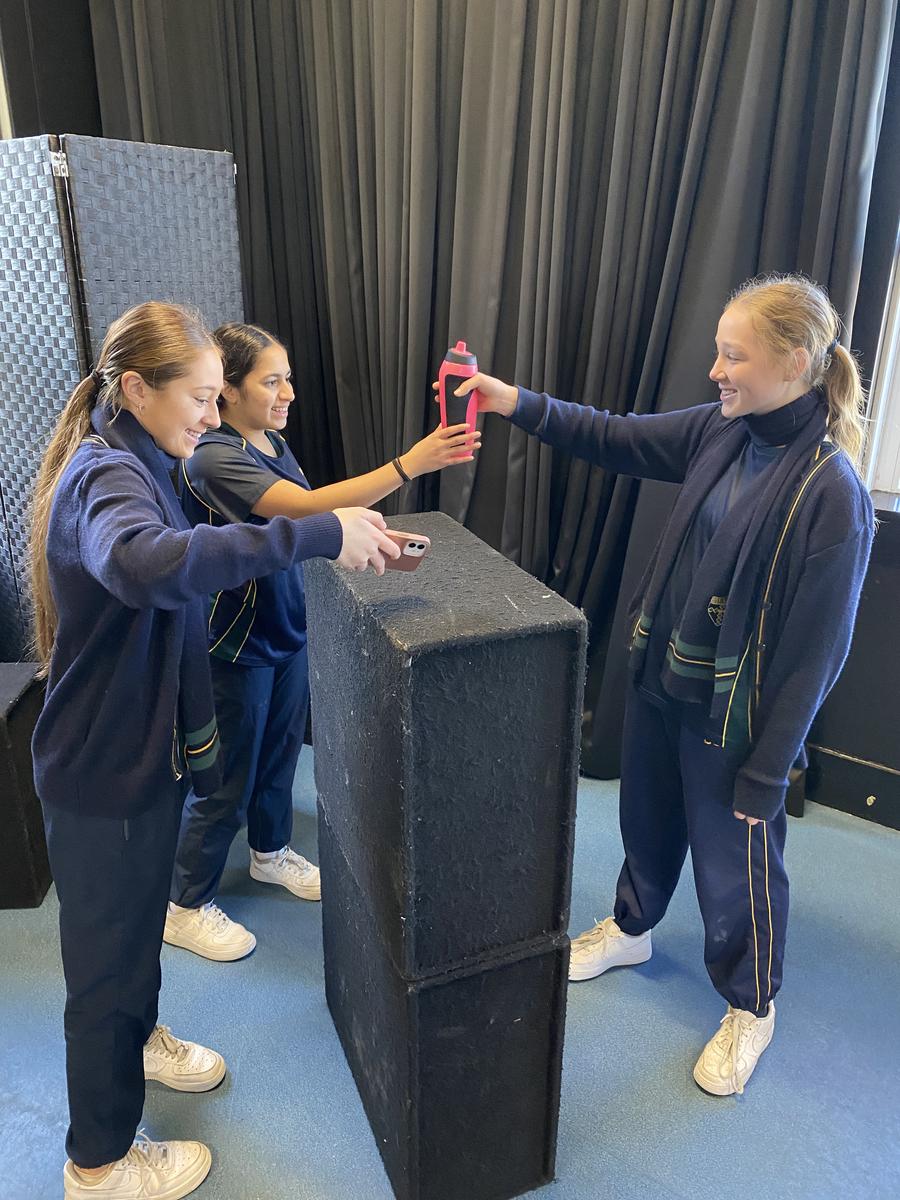

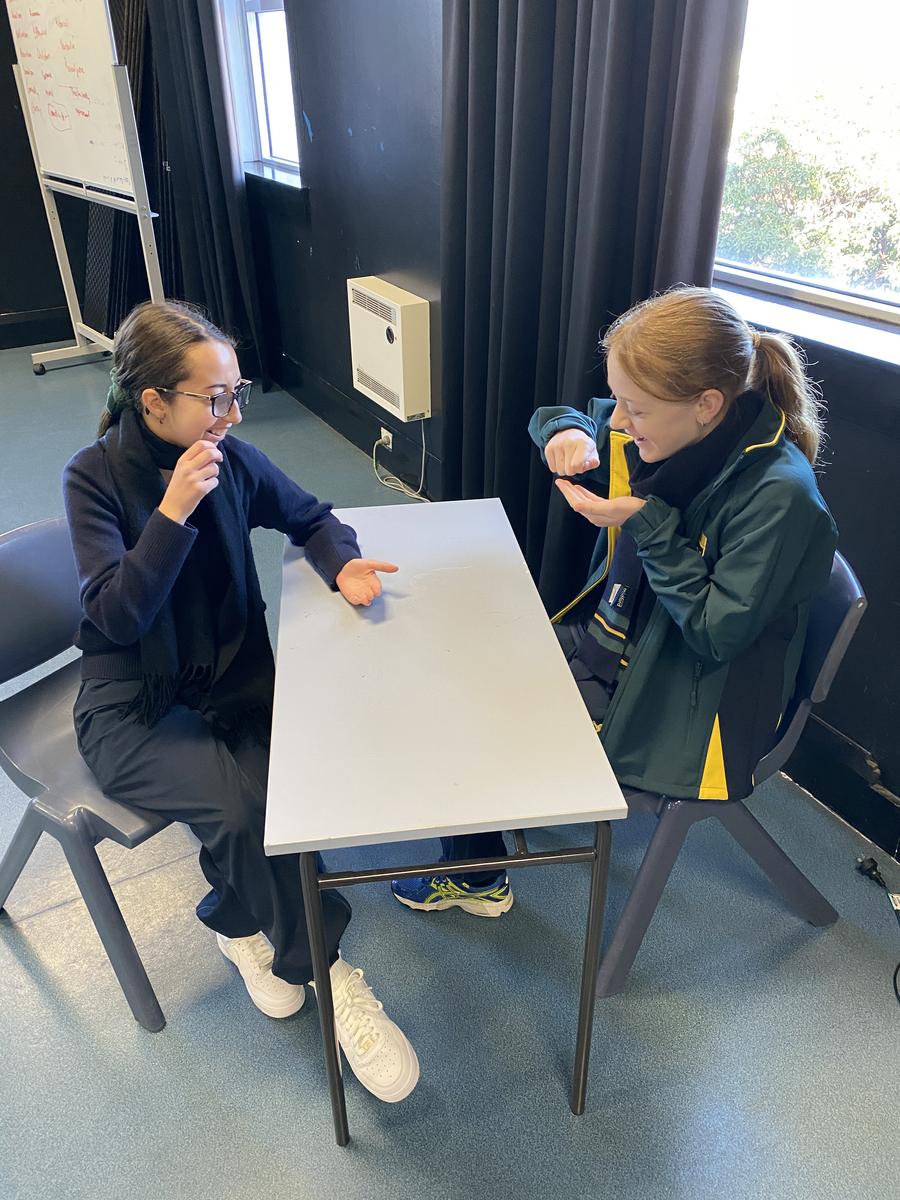
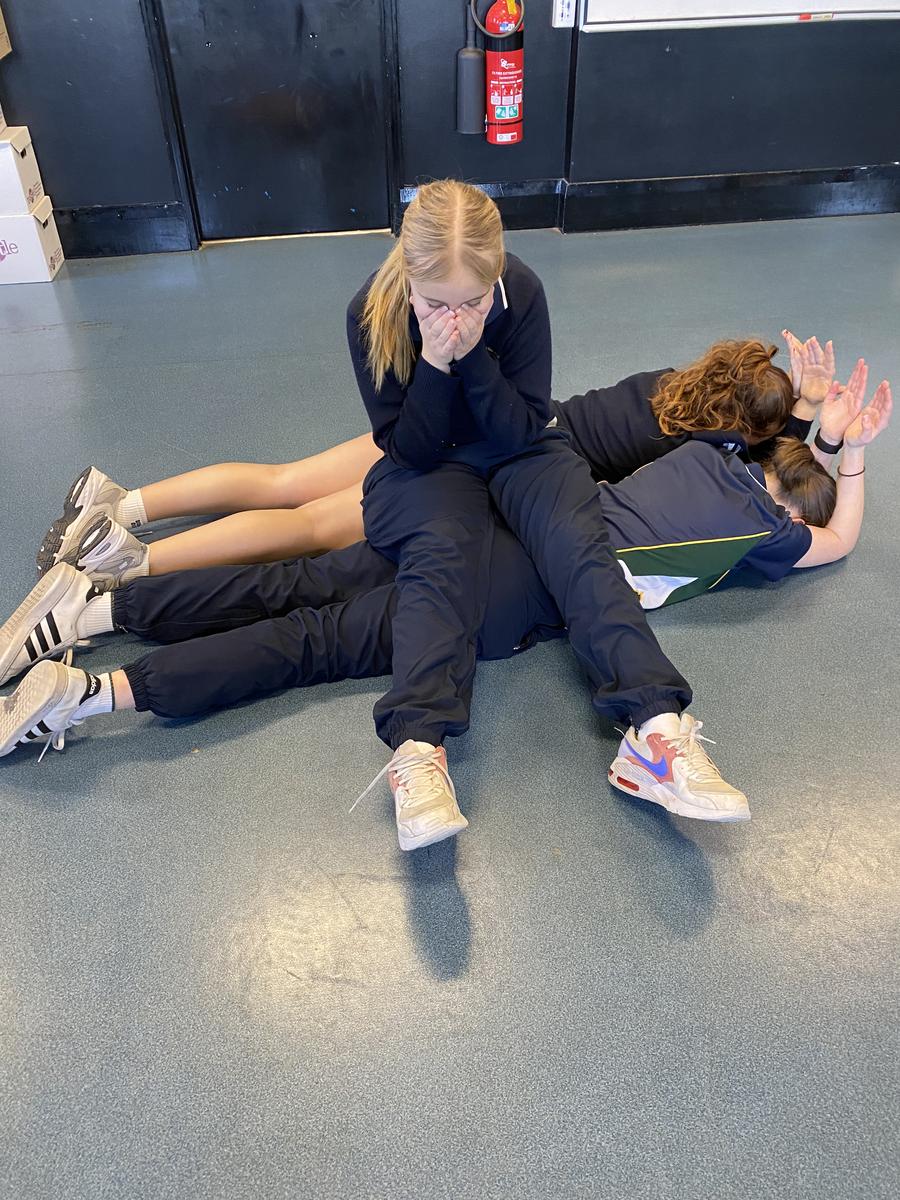

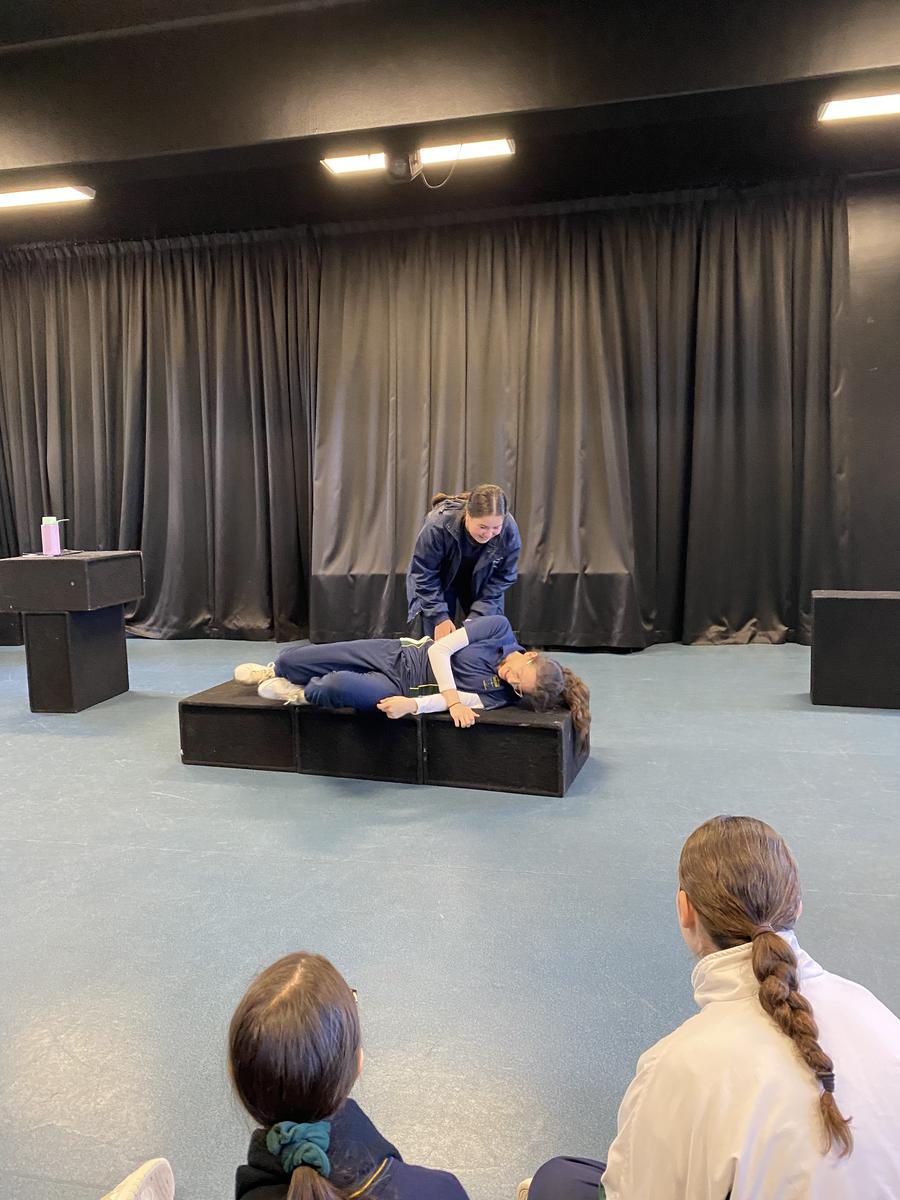
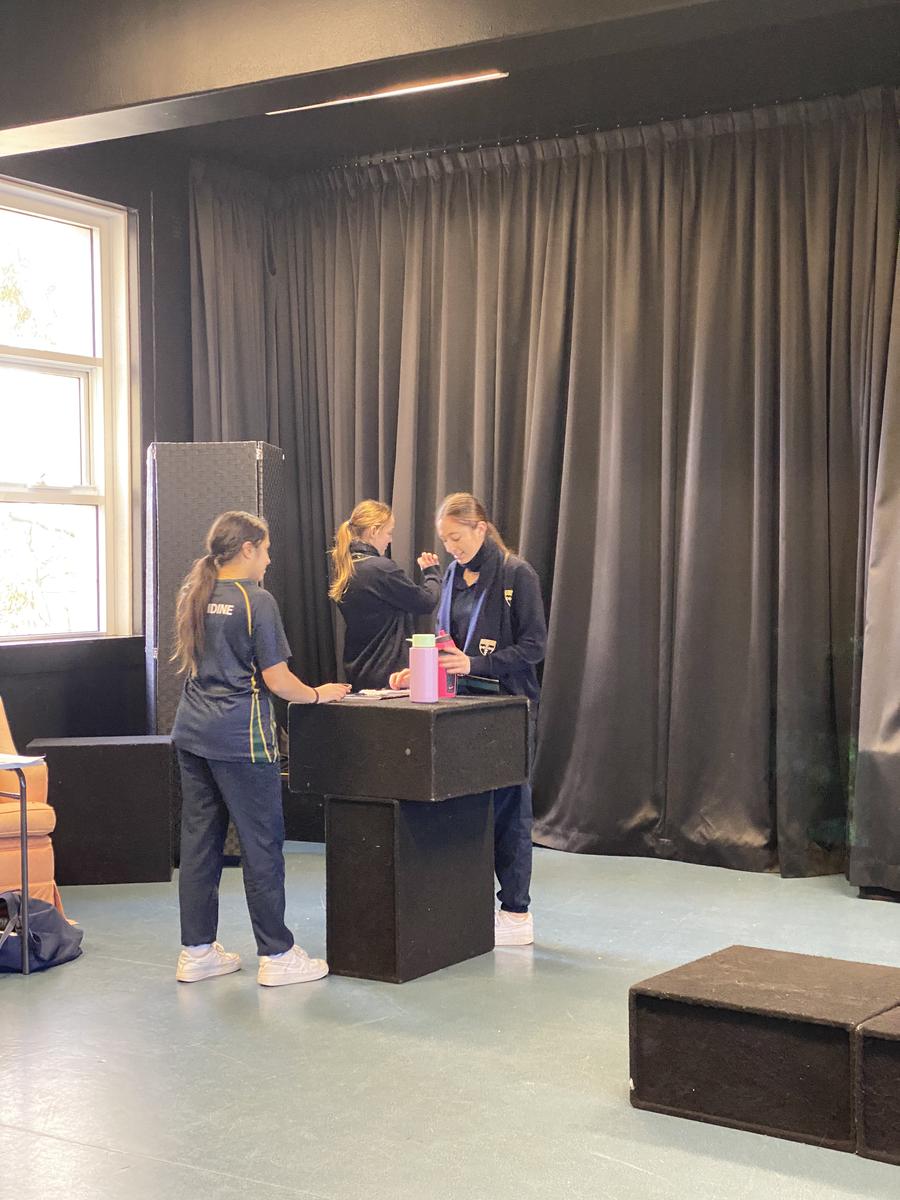
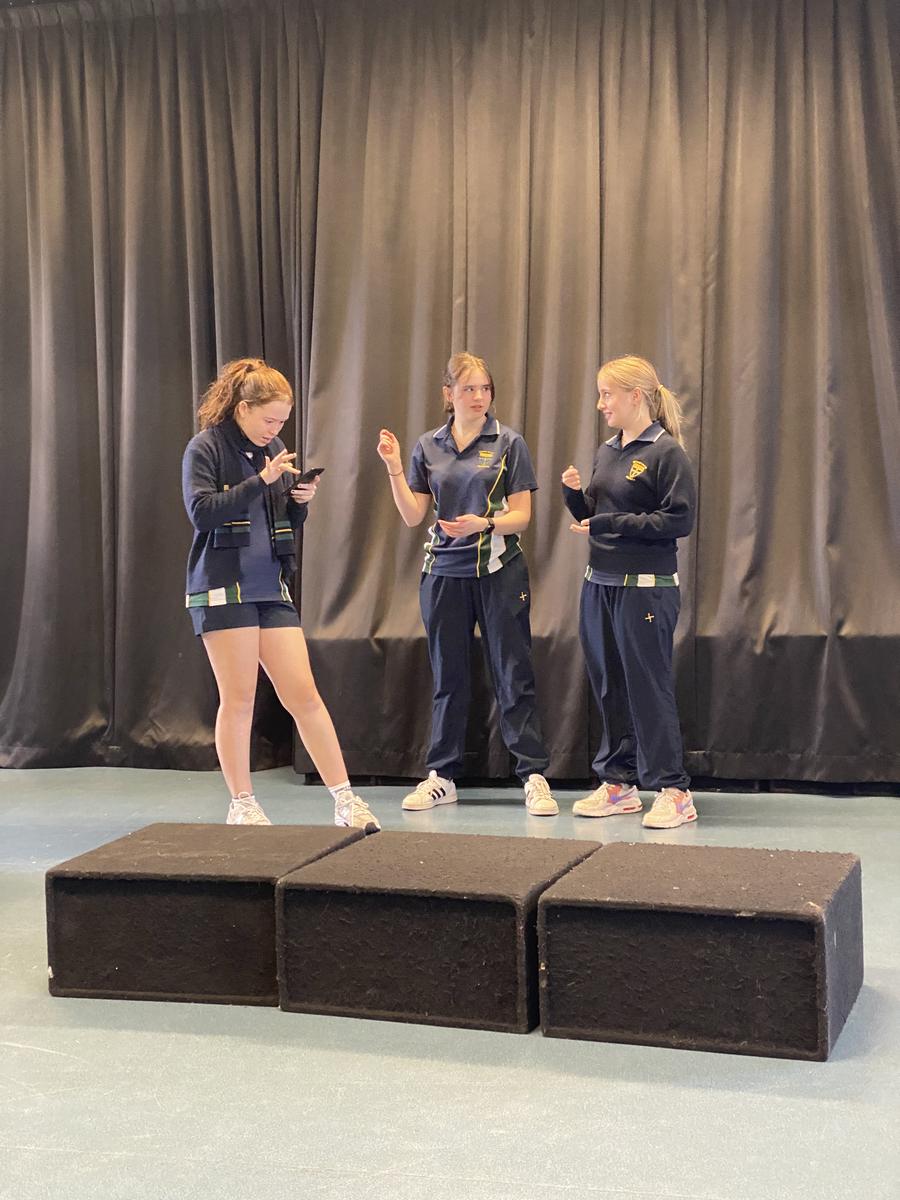
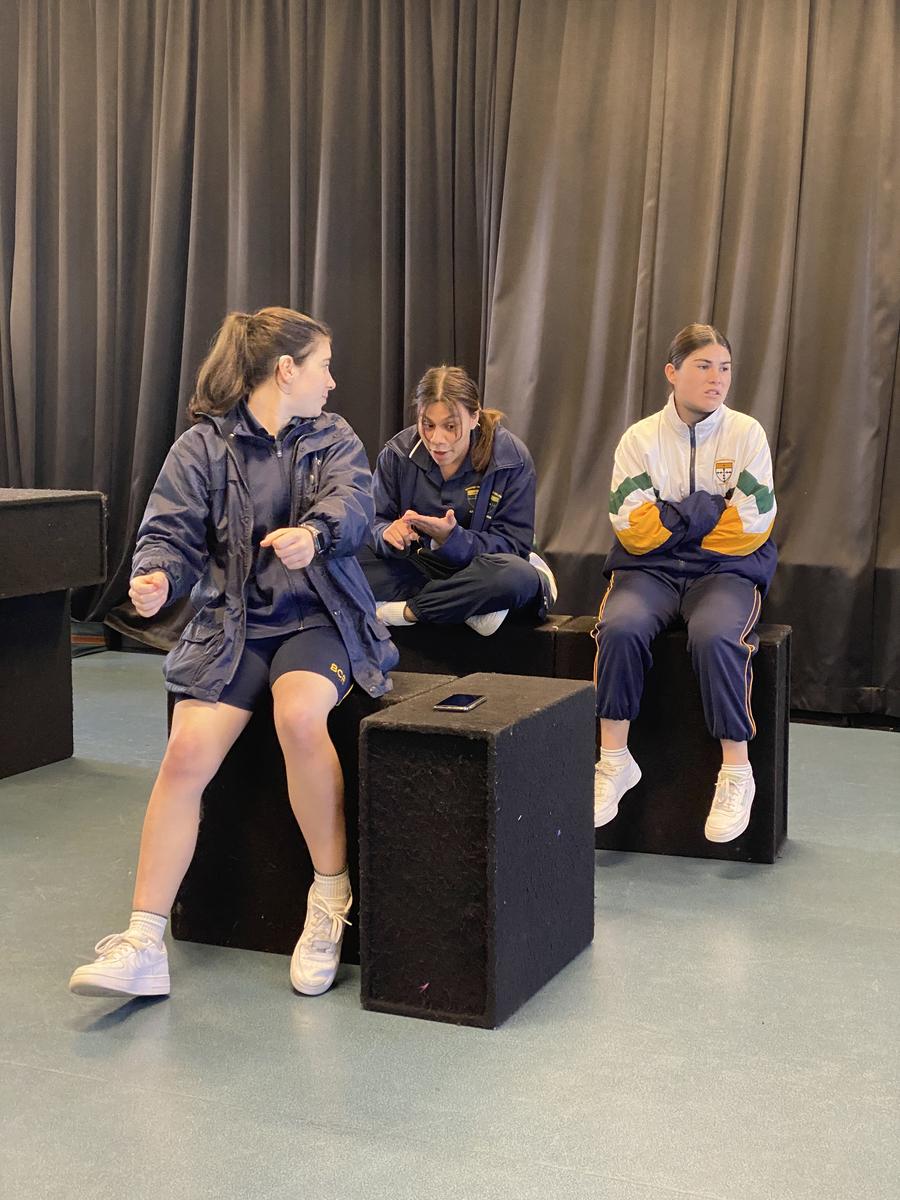











Year 10
We are excited to kick off the new academic year with an exhilarating drama unit for our talented Year 10 students – 'Elements of Design.' This unit will delve into the captivating world of theatrical design, empowering our budding performers with essential creative skills.
Throughout the unit, students will embark on an immersive journey, exploring Stage Configuration, Set Design, Lighting Design, Sound Design, and Costume Design. By understanding these crucial elements, our students will gain a holistic understanding of how each component shapes and enhances the theatrical experience.
As part of this enriching experience, students will create their own Design Portfolios, showcasing their unique visions and ideas for these design aspects. This hands-on approach will nurture their creativity, problem-solving abilities, and collaboration skills – all essential qualities for aspiring actors, directors, and designers.
We can't wait to witness the incredible talent and imagination our Year 10 drama students will bring to life during this captivating 'Elements of Design' unit.
Year 11
This term Year 11 embarks on two of the most rewarding, yet daunting aspects of stage 6 Drama: Monologue performance and essay writing!
The Power of Monologues:
Monologues are a unique and powerful form of storytelling, where a single character takes centre stage to express their thoughts, emotions, and experiences. It is an opportunity for the students, as actors, to delve deep into the psyche of their characters, bringing their voices to life in a captivating and engaging manner. With teacher guidance, students will work together on vocal techniques, body language, and emotional depth to create authentic and impactful performances.
Essay writing
The drama essay is a platform for students to delve deeper into the world of theatre and dramatic arts. It provides an opportunity to analyse, interpret, and critically evaluate various aspects of a play, such as themes, character development, plot structure, and the use of theatrical techniques. Writing a drama essay encourages students to articulate their thoughts and insights coherently, honing their analytical and writing skills. Moreover, it fosters a deeper appreciation and understanding of the complexities and nuances of dramatic storytelling, helping students connect with the characters and themes on a more profound level.
Through the process of crafting a drama essay, students also learn to form evidence-based arguments, supporting their ideas with references from the play itself or scholarly sources. Ultimately, a well-crafted drama essay not only showcases a student's grasp of the subject matter but also empowers them to become more expressive, critical, and thoughtful individuals within the realm of theatre and beyond.
This term is shaping up to be an exciting one as Year 11 concludes their preliminary studies. I am sure they will rise to the challenges and exciting autonomy this term.
Kind regards,
Ms Tayla Whiteman
Theatre Sports, Drama club & more
Our final year 7 pastoral care classes begin their sports time rotation of Theatre Sports this term. We look forward to Thursdays full of improvisation, a very loud classroom and fantastic performances improving weekly. Drama Club for years 7 and 8 will resume mid-term due to our Drama teachers; Ms Tayla Whiteman and Miss Catherine Exton’s absence for the World Youth Day pilgrimage. There will be more information and communications regarding this.
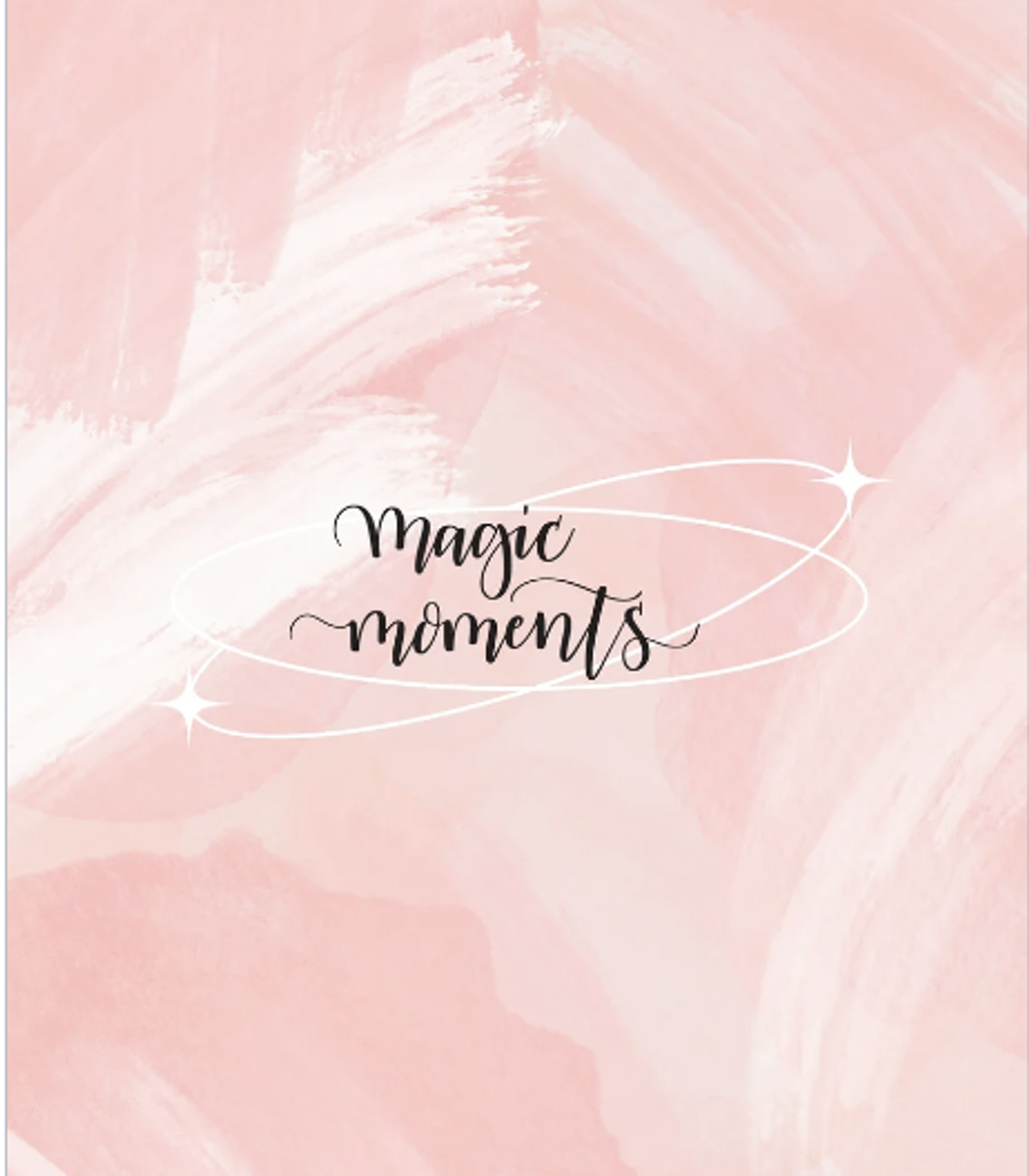

Year 7 English has been exploring the Aboriginal play ‘Honey Spot’ by Jack Davis. This play has some beautiful moments of dance and combining cultures. To convey how magical movement and music can be onstage we watched Mitch Yambo’s audition for Australia’s Got Talent where he incorporates Aboriginal dance and language as he sings. It was wonderful watching the girls' faces light up and their feet start tapping underneath their desks, they were asked to describe how they felt after watching and the words ‘inspired’ ‘impressed’ and ‘happy’ were screamed out. We followed this up with his and Reigan’s cover of ‘Great Southern Land’, which again had them all bopping along (apparently a few dads like this song) and finally understanding exactly how the dramatic techniques we spoke about in the play, would make the audience feel.
Tayla Whiteman
Year 8 English - To immerse them in the play's world, I asked the students to perform the first brawl scene of Romeo and Juliet. The classroom buzzed with excitement as they eagerly embraced the challenge. They formed groups and rehearsed with enthusiasm, bringing the scene to life. With animated gestures and expressive voices, they transported us to the streets of Verona. The tension between the Montagues and Capulets filled the room, captivating everyone and as the performances unfolded, the class applauded and offered feedback. This moment showcased the power of live performance in understanding Shakespeare's work. The students gained a deeper appreciation for the characters and their motivations. Performing the scene required students to delve into the language used by Shakespeare. They had to analyse the richness of dialogue, metaphors, and wordplay to effectively portray the characters, leading to a deeper exploration and appreciation of the complexity of the English language.
Natalia Hennessy
Year 9 English - We recently began discussing The Taming of the Shrew and the extent to which Katherina is maligned for having a strong, assertive personality as a sixteenth-century woman. It was beautiful to see the students’ outrage and their support for women to have a voice, they also recognised the fact that this feminist struggle is still ongoing, despite some progress.
Nicole Bassil
Year 10 English was challenged to teach an audience of their age group about key aspects of Shakespeare’s Macbeth's context, choosing between a series of educational display posters, a YouTube screencast or a TikTok-style video to deliver their key information. Using the Cornell University method of note-taking, they first engaged in researching the topics of witchcraft, the history and conventions of the tragedy genre, and the great chain of being paradigm. They then got to work creating an array of engaging and informative resources. The final products were very impressive showing not only an awareness of the needs of the audience but also creativity and imagination in how to present this information. The girls rose to the challenge of condensing detail into a short format, and learnt how to employ an effective method of note-making for research and study along the way
Clare Rose
Year 11 Advanced English were prompted to think about the flaws and follies of human nature through their study of George Orwell’s Animal Farm and Rob Sitch’s mockumentary series Utopia. It was amazing to see the girls begin to unpack and unravel the clever construction of both of these texts and dig deeper into the values and attitudes that each composer is questioning within their unique context. Sitch’s depiction of bureaucratic inefficiency at its finest never failed to make us laugh, even when it was at our own expense.
Jesse Bacon
Year 12 English Extension II students are in the final stages of their Major Work composition. The completion of this project is the culmination of a year of independent investigation, robust discussion, drafting, editing and mentoring. The students of English Extension II are passionate about literature and language. Each student has produced a noteworthy prose piece that reflects their love of the narrative and their personal areas of interest. We have been fortunate to collaborate with Dr Felicity Plunkett, an academic and revered author, in the makings of these amazing Major works. Dr Plunkett has provided invaluable insight to support our students in finessing their prose pieces. Undertaking a Major Work is a significant commitment and the Extension II students are to be commended for their determination, hard work and openness to share their literary talents
Ele Agazzi
In Year 12 English Advanced, students have completed a critical study of the poetry of T.S. Eliot. In considering the modernist framework of his poetry, the context of the early 20th century and Eliot’s manipulation of poetic form, it was wonderful to see the enthusiasm with which our ladies unpacked each poem clinically and critically, connecting their ideas, annotations and textual understanding with critical and academic readings. Of particular note is the wondrous ways in which our ladies have perceptively woven threads throughout each poem to connect their conceptual focus and to build a more integrated understanding of the suite of poetry as a whole. They have understood, in real terms, the ideas of textual integrity and artistic unity and have very much enjoyed exploring the legacy and impact of Eliot’s poetry on his audience– we cannot wait to read their critical analysis of the texts!
Matthew Woolaston
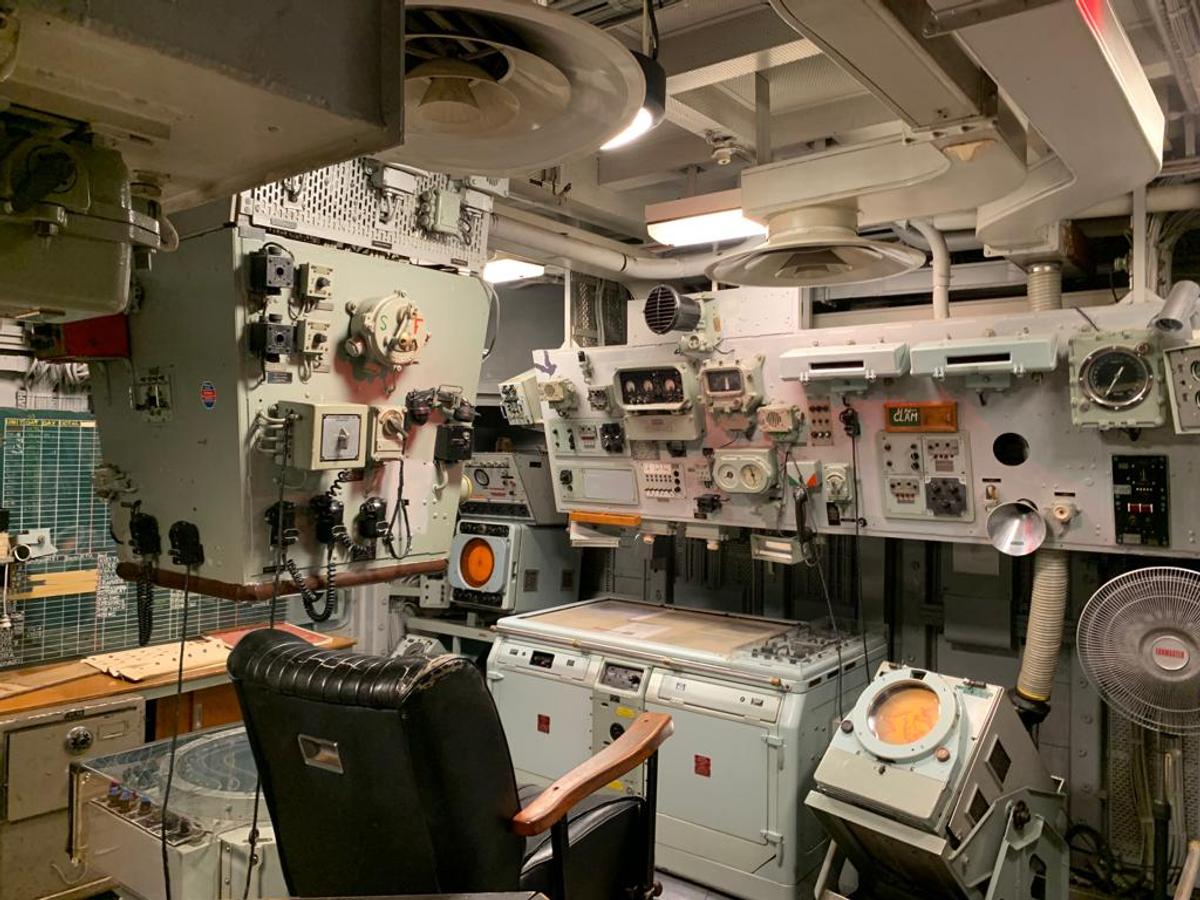
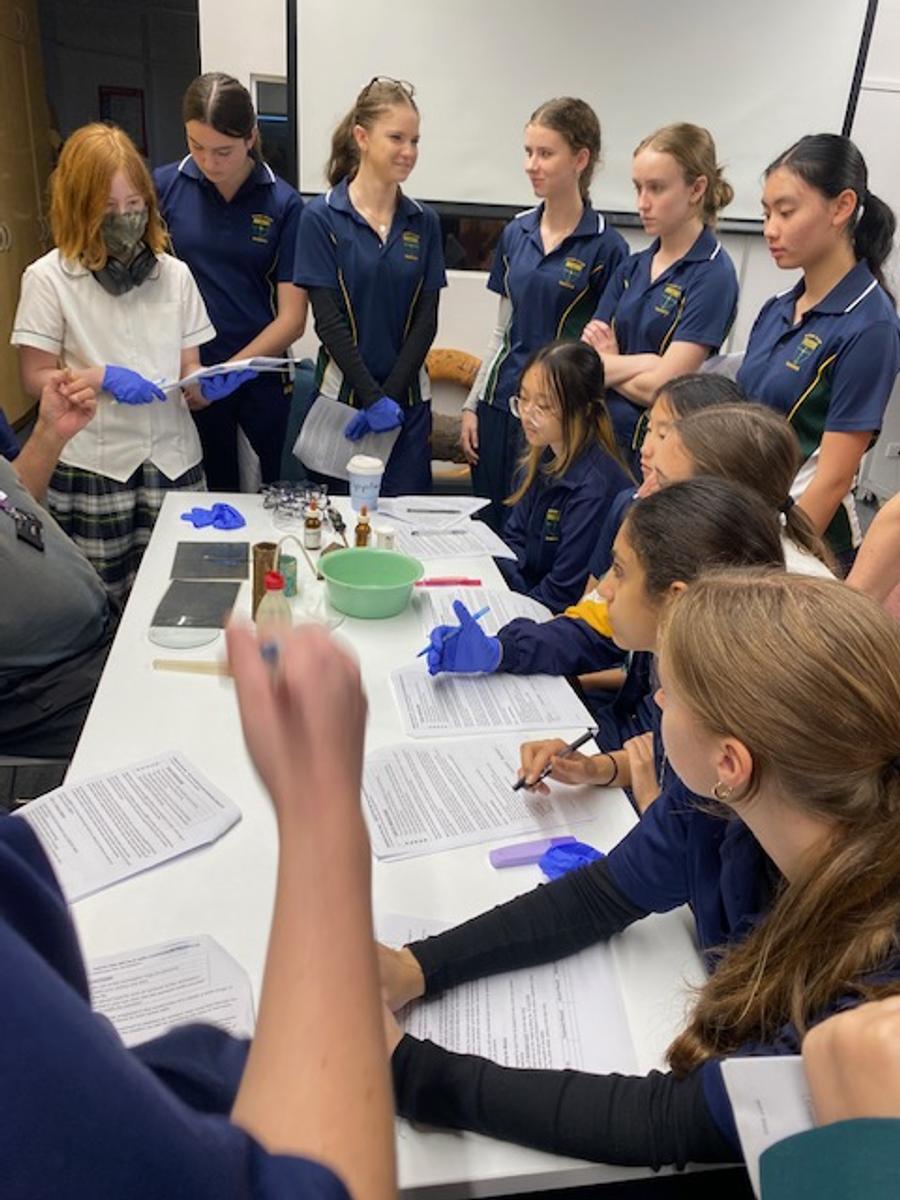
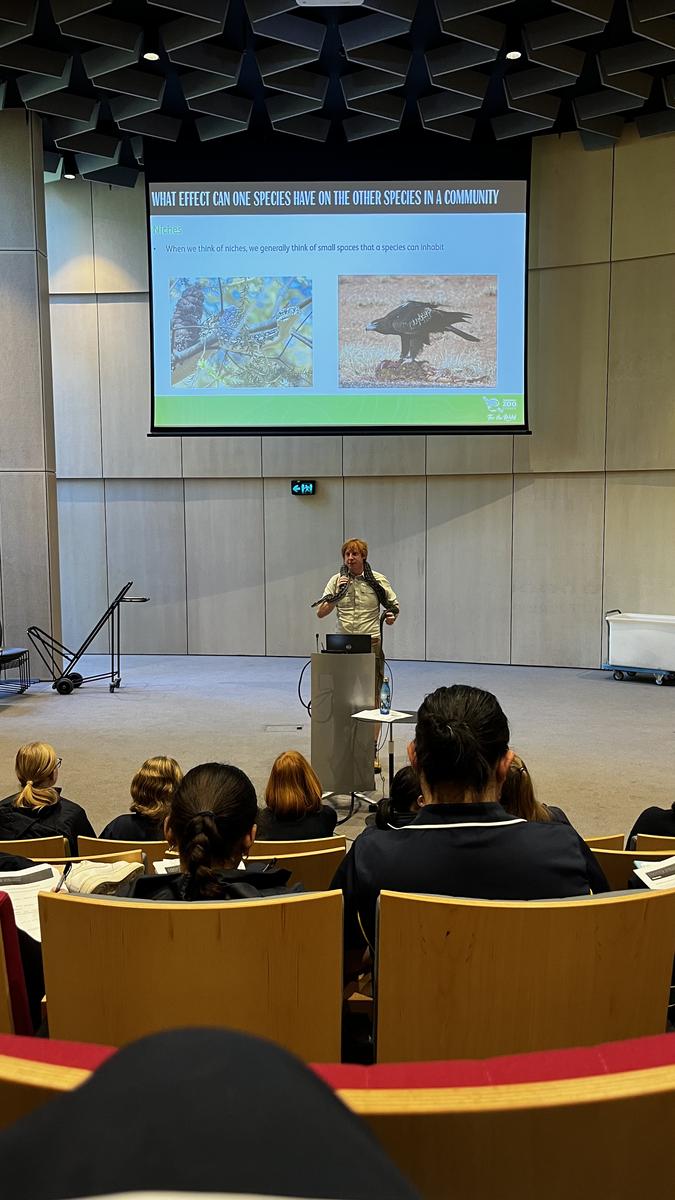

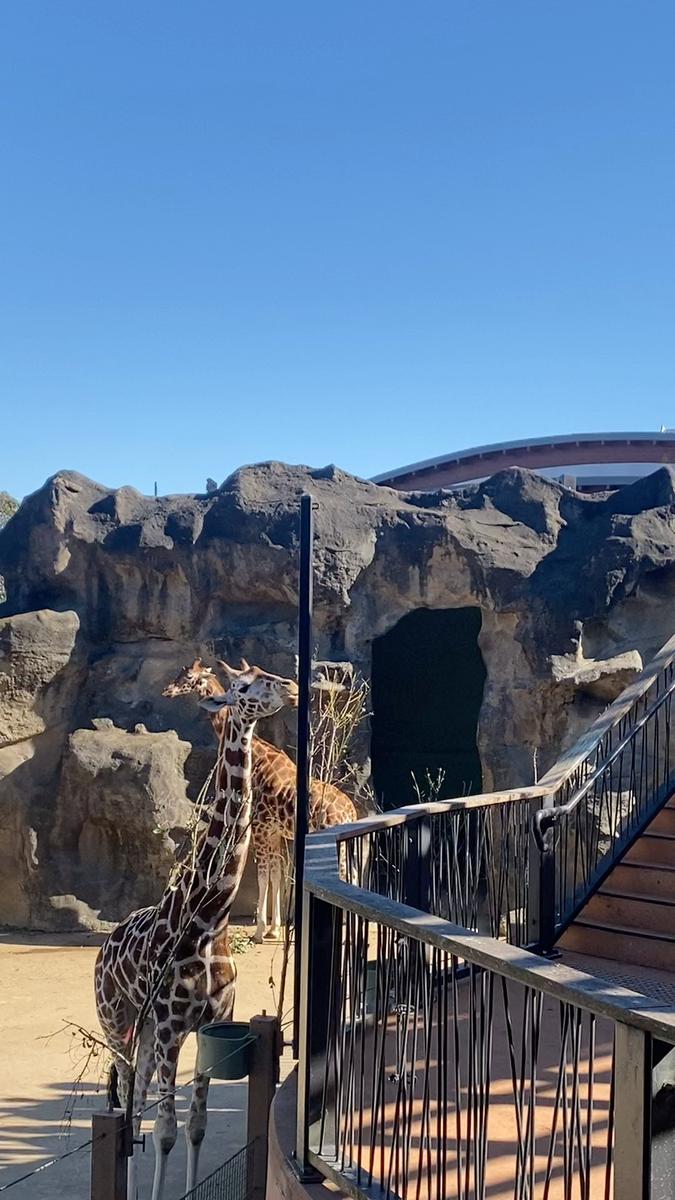





Excursions related to Depth Studies dominated Year 11 Biology and Year 11 Chemistry towards the end of Term 2. The opportunity to engage with scientists in the conservation of animals as well as shipwrecks provided girls with real-world applications of the theoretical concepts covered in the HSC syllabus.
Year 11 Biology students went to Taronga Zoo to further their understanding of Biological Diversity, which was the focus of their Depth Study in Module 3. Students learnt about the Bellinger River snapping turtle and how the population was affected by an introduced virus as well as the impact of cane toads on other species. The concept of phenology, which is the study of biological events that rely on climate, was introduced. The positive health and psychological effects of hugging a tree were outlined by the presenters. Students were able to have an immersive experience with a variety of animals, including an echidna, a snake, a turtle and a possum.
Year 11 Chemistry students went to the Australian National Maritime Museum in Darling Harbour to learn about Shipwrecks and corrosion protection as part of their Depth Study. The day proved to pass quickly with a variety of hands-on activities, which included testing for metals, chlorides and carbonates in metals, the diffusion rate of chlorides for desalination of artefacts, investigating methods of protecting metals as well as viewing historical artefacts from shipwrecks around Australia. Students were also able to explore inside the HMAS Vampire, which served in the Royal Australian Navy from 1959 to 1986 and it was the third of three Australian-built Daring-class destroyers. The Daring class were characterised by their large size, strength, light construction as well as their high speed.
Students in Years 7 to 10 were busy at the end of Term 2 preparing for their various assessment tasks. Year 9 students submitted interesting multimedia projects highlighting the properties of light while students in Years 7, 8 and 10 focused on developing their working scientific. Year 7 students built paper helicopters and investigated the effect of wing length on their drop time to the ground. Year 8 and 10 students tackled data analysis tasks, which focused on analytical skills in interpreting various representations of scientific data.
Jaya Chowdhury
Head of Science
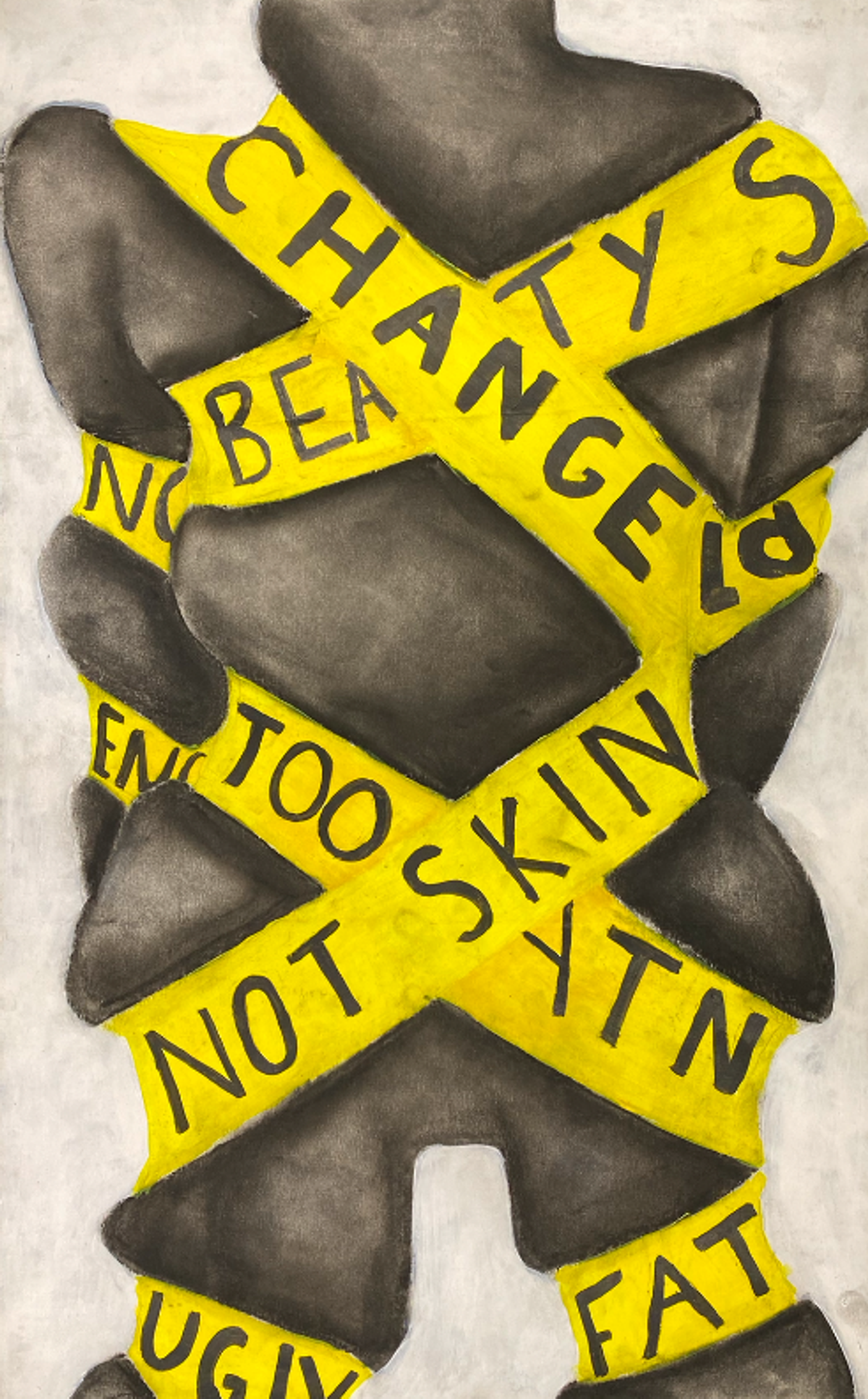
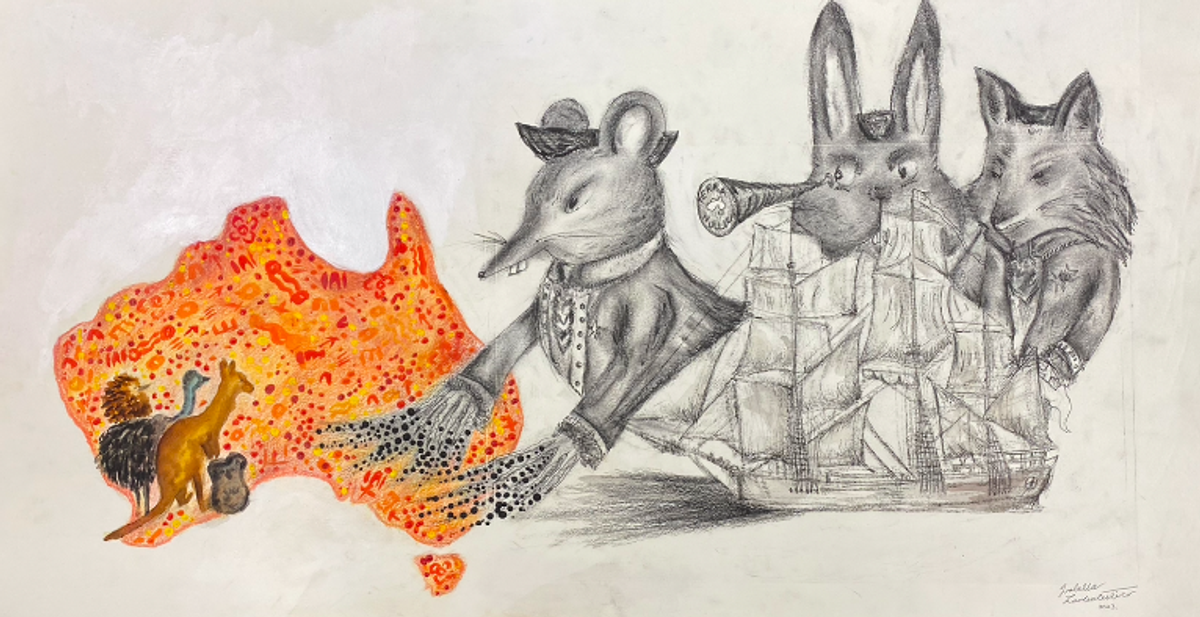
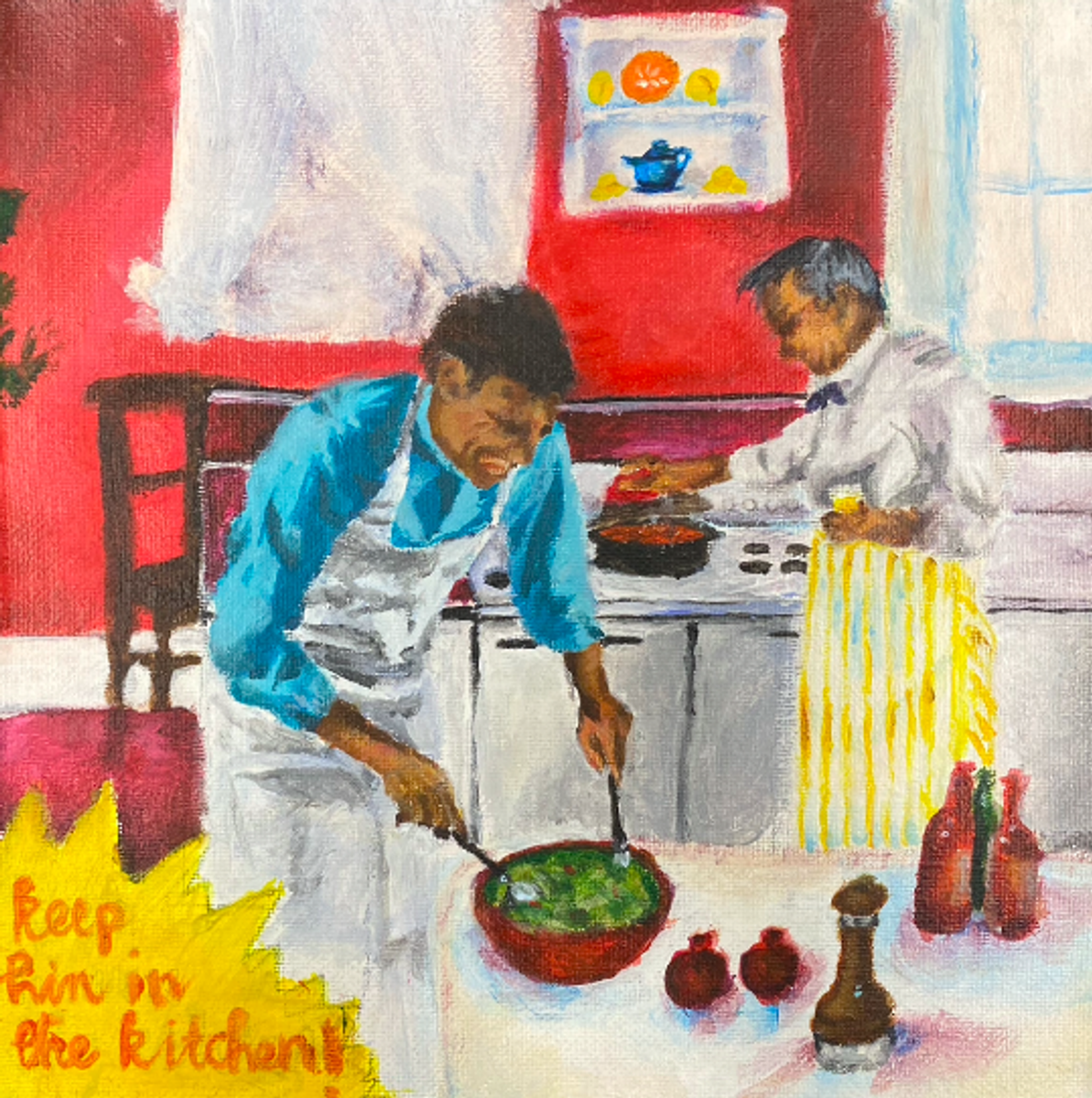
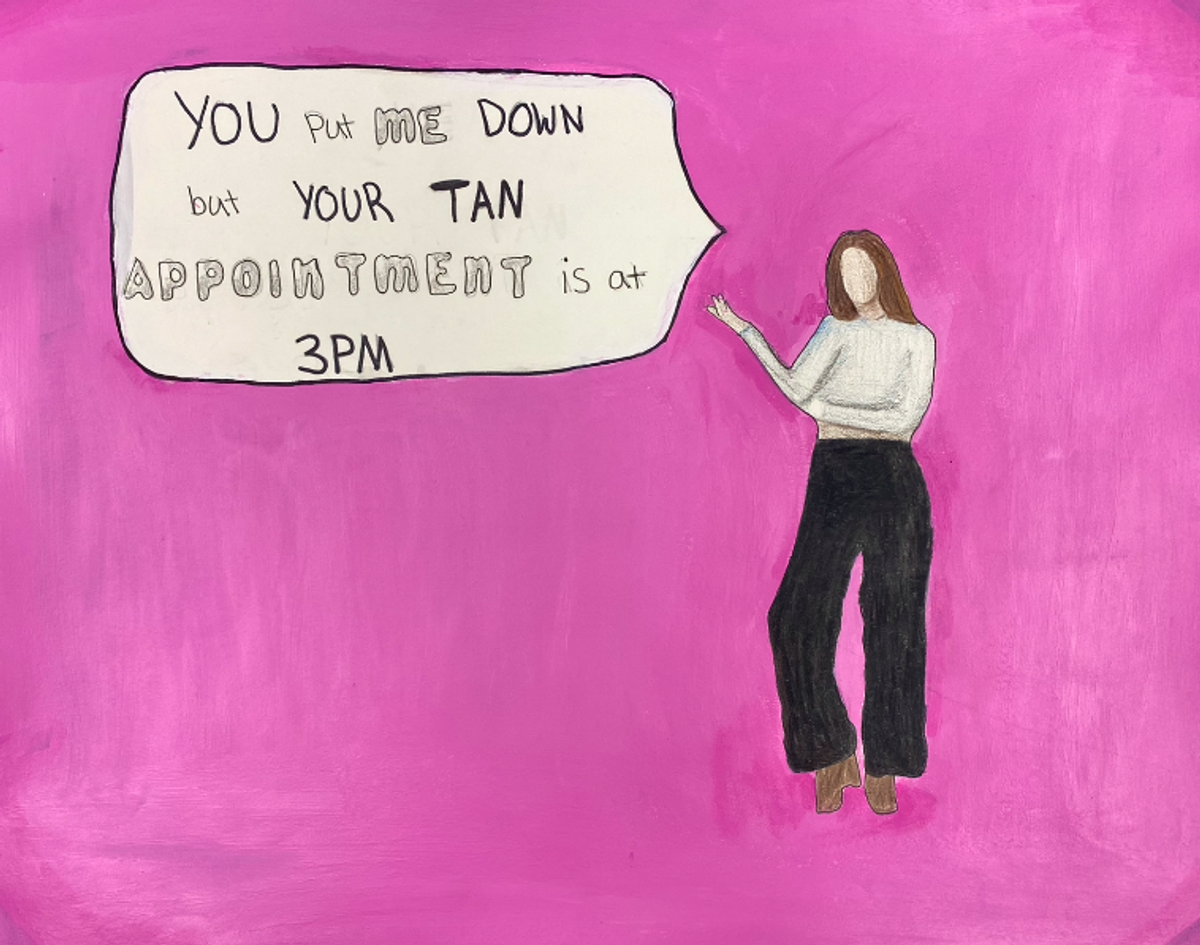

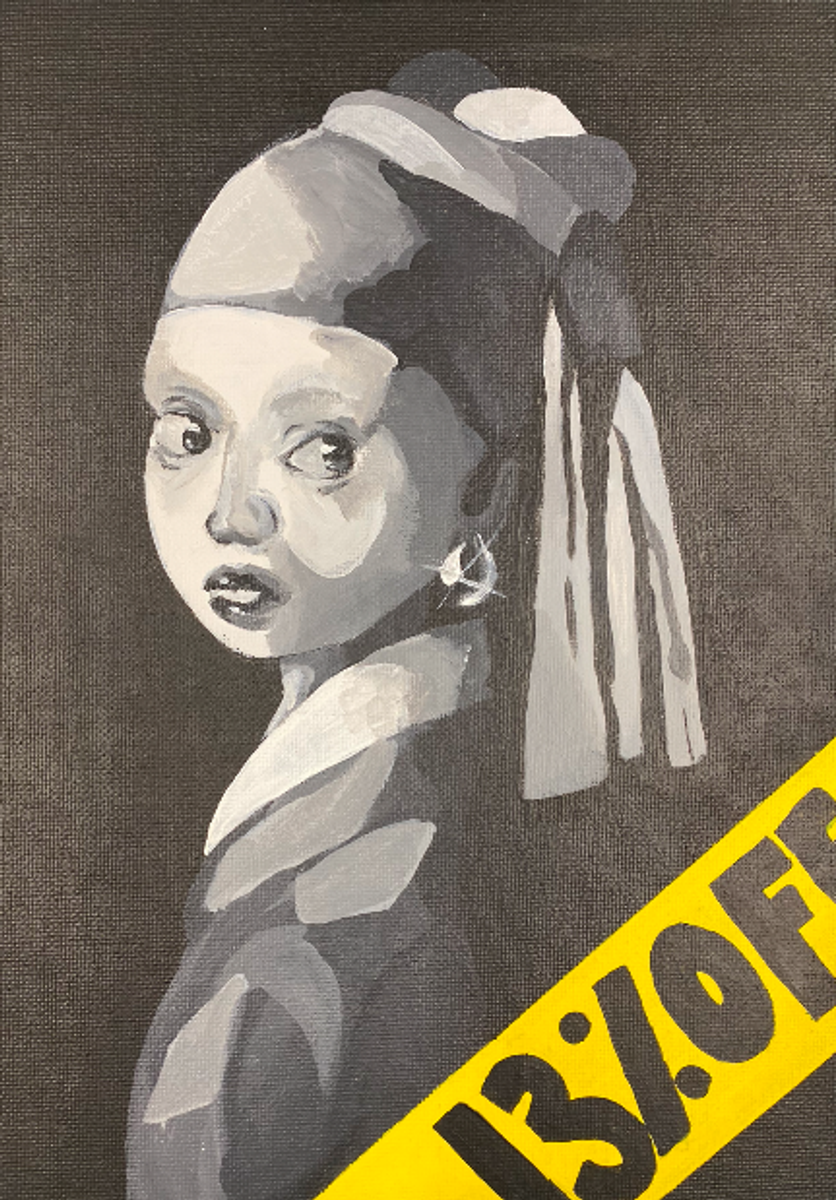
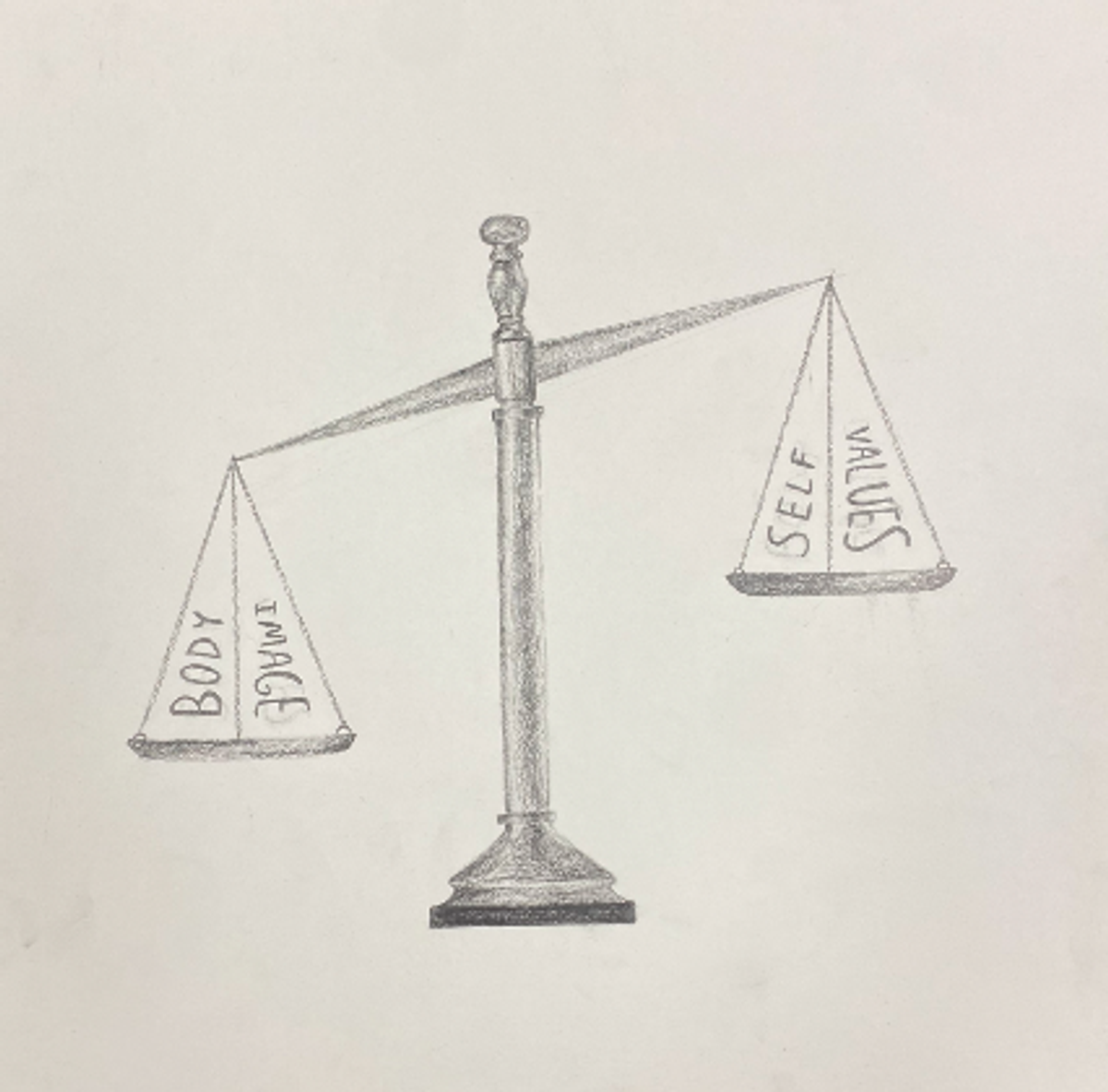









The beginning of Semester 2 presents the Visual Arts Department with the opportunity to extend a warm welcome to our new Year 7 and Year 8 Visual Art classes. We hope that you find your experience in Visual Arts over the next two terms highly rewarding and inspiring as you explore your creativity and extend your skills in artmaking and understanding the meaning of artworks.
The Visual Arts Department also wishes to congratulate Year 12 on the submission of their Body of Work for final school assessment. These artworks are fabulous and demonstrate students' ability to explore and convey a concept deeply and with sophistication through their chosen medium. It is now time to continue to push and refine these further before final submission for NESA. We look forward to showcasing the completed artwork later this term. Stay tuned for further details closer to the date!
Congratulations to Year 11 on the successful exploration of Abstraction in Visual Arts. Throughout this case study they have produced a range of outstanding mini-artworks and applied their knowledge and skills to the creation of an abstract interpretation and emotional response to the world in an final abstract artwork. Keep this motivation up as we head into our final term of year 11 and begin to explore the representation of women in art.
At the end of the last term, Year 10 submitted their artworks in response to Postmodernism. These were highly creative and thought-provoking as they touched on key issues within society from gender stereotypes, cultural diversity, environmental impacts and more. The Art Department encourages year 10 students to continue to explore their world as they dive into digital photography and consider how looking through a lens can depict, distort or change their view of the world and objects within it.

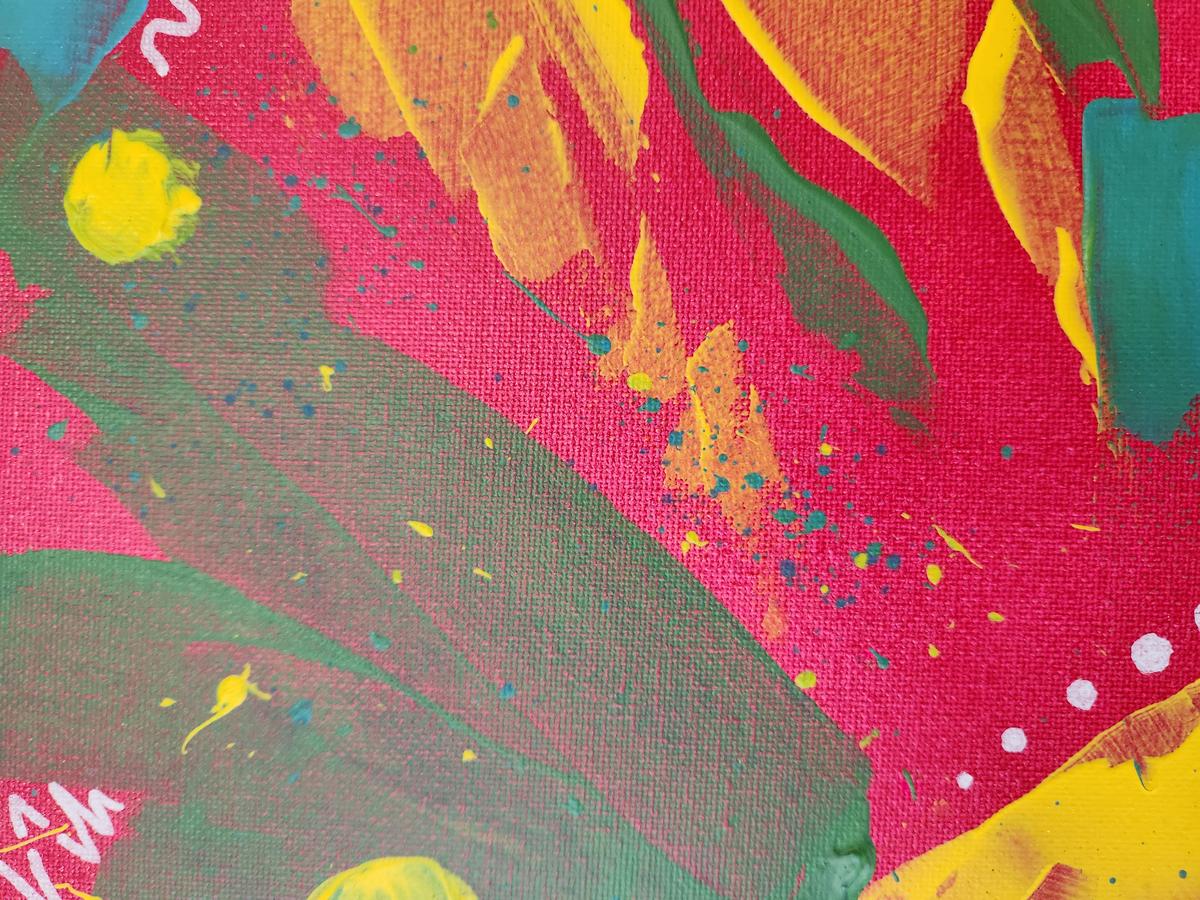
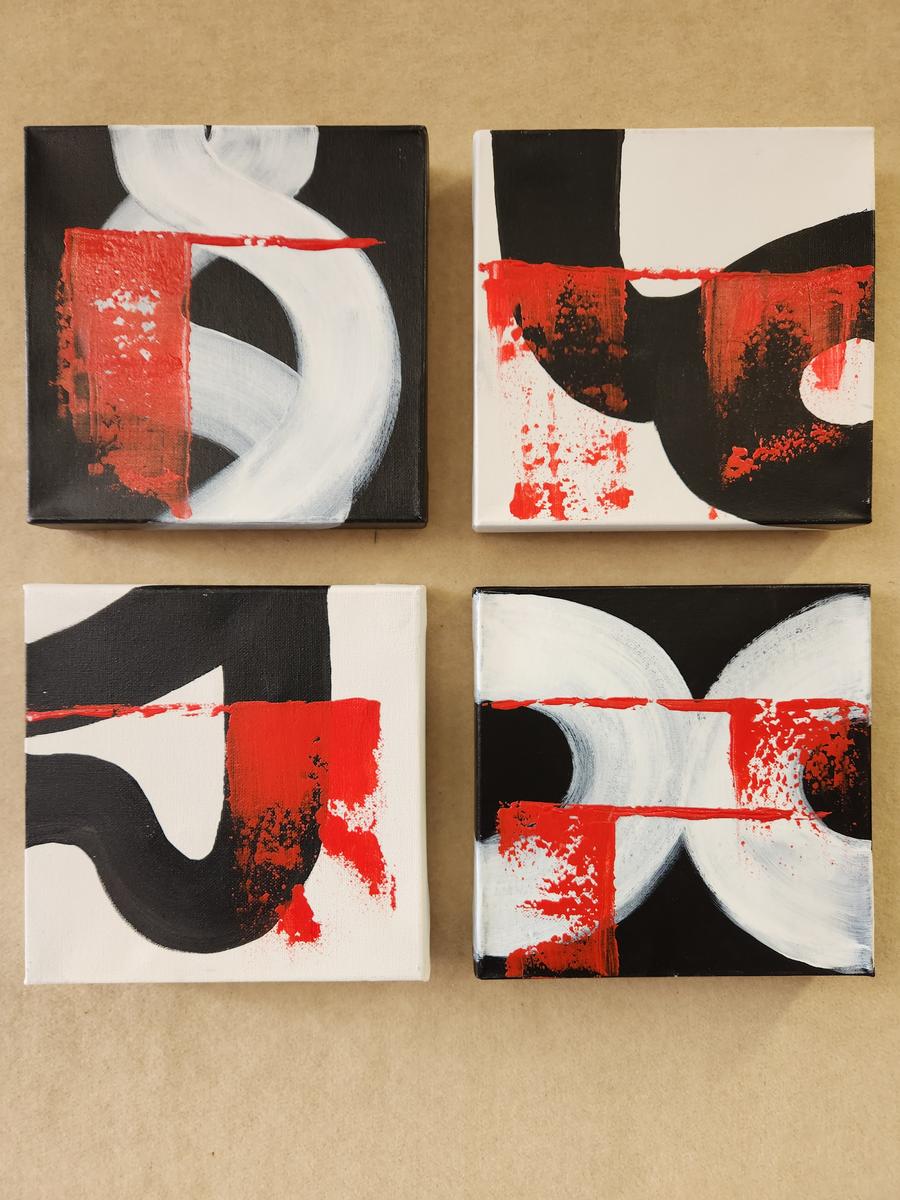

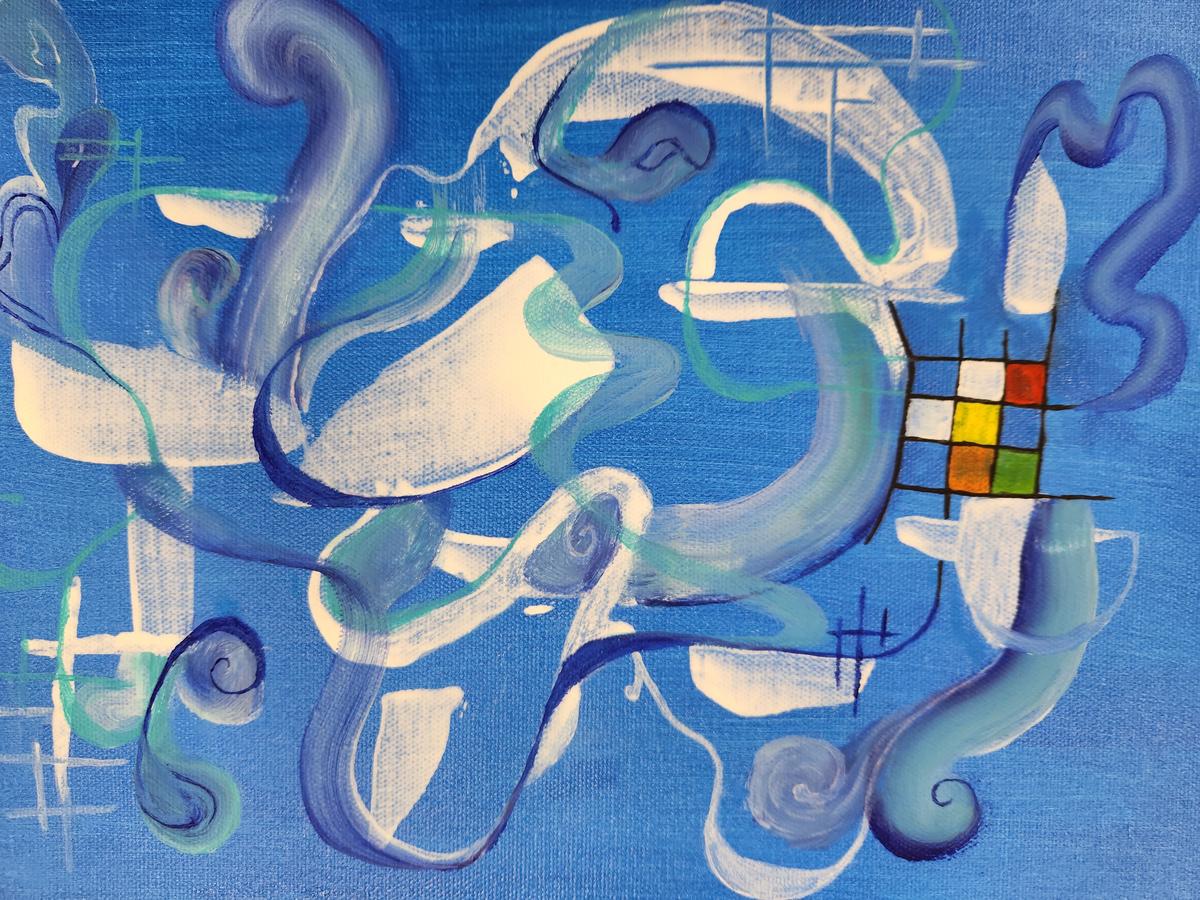
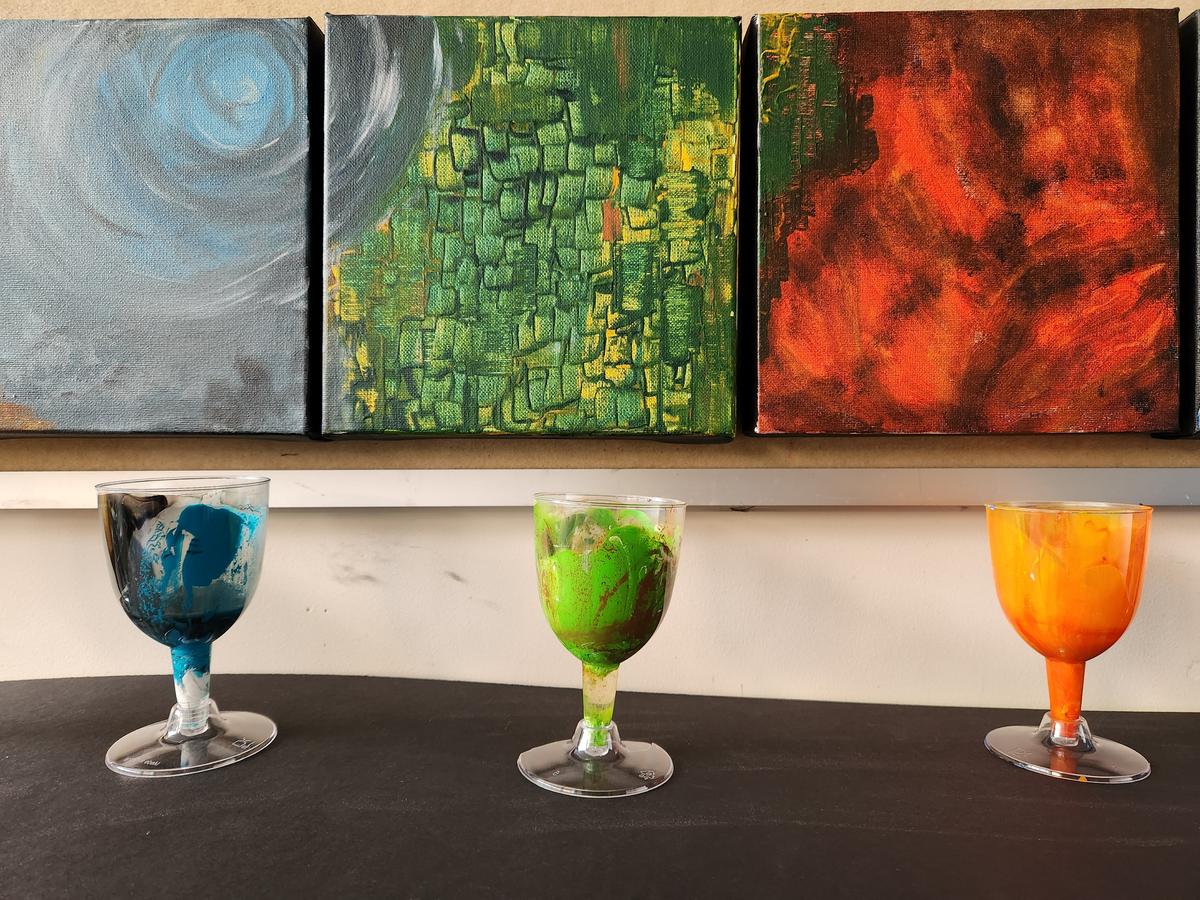
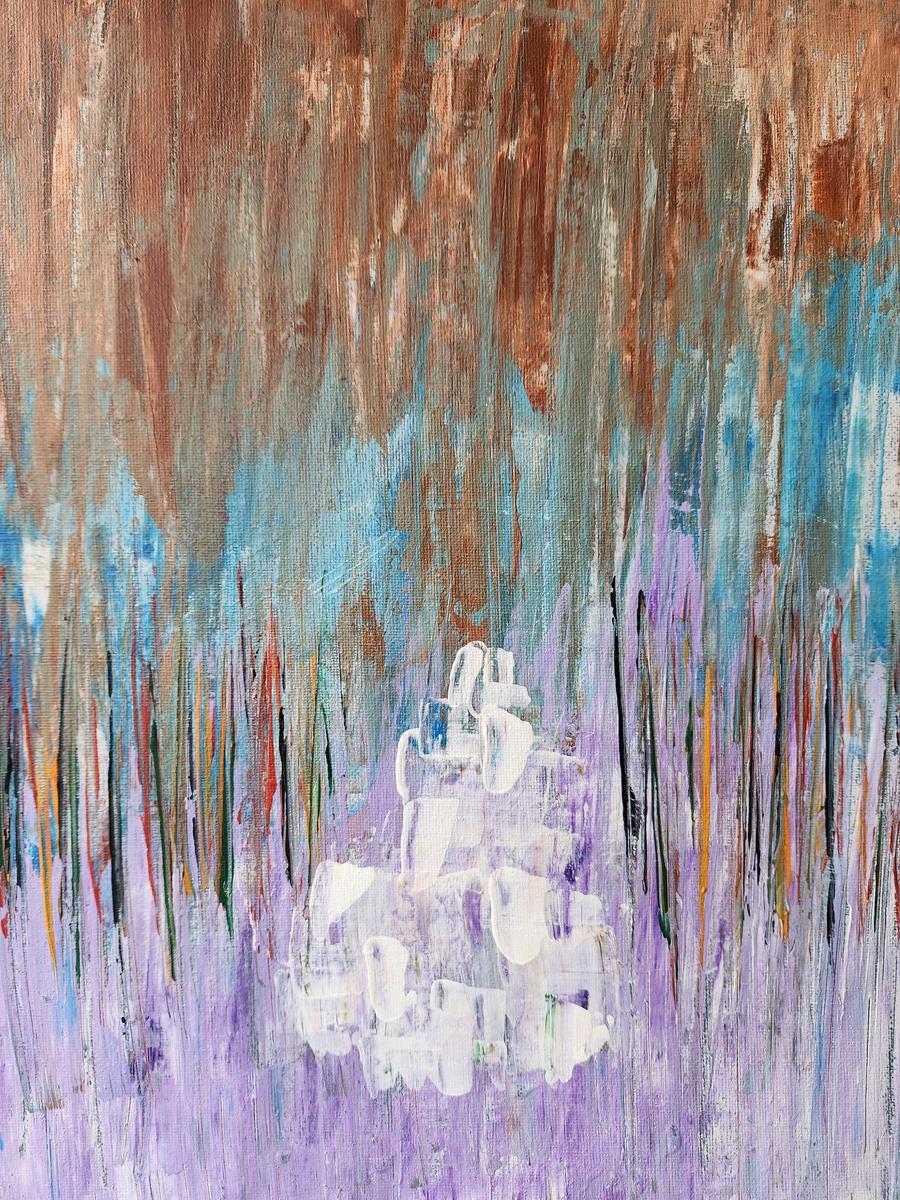







Melissa Nutter
Head of Visual Arts